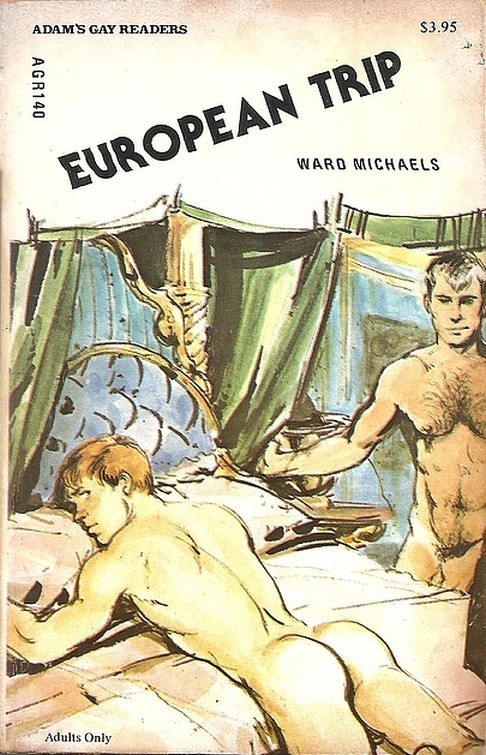#gay literature
Text
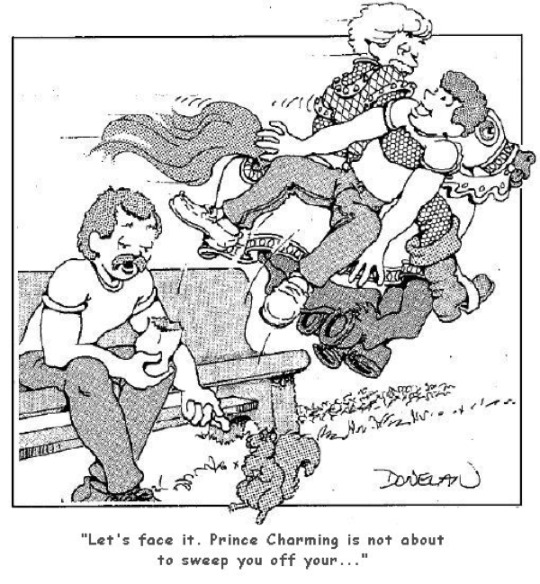
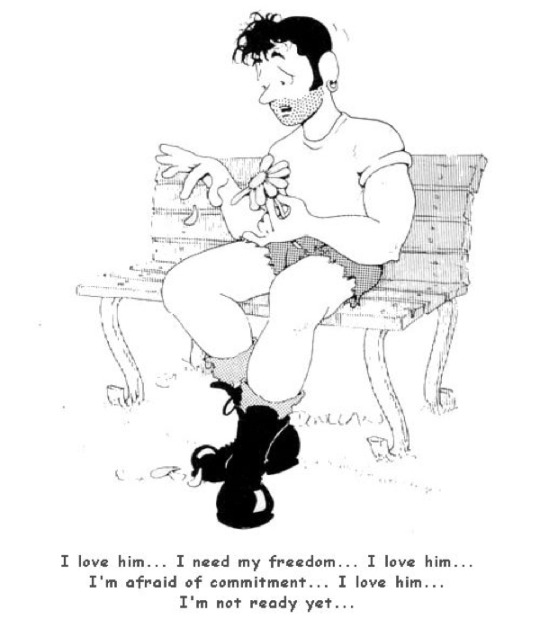
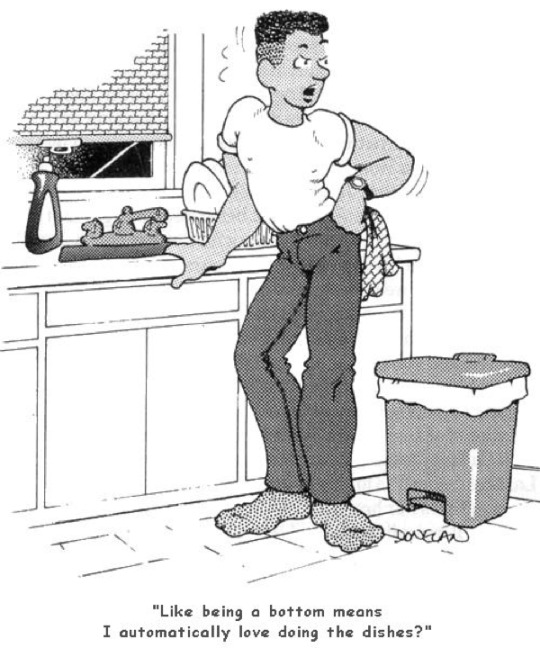
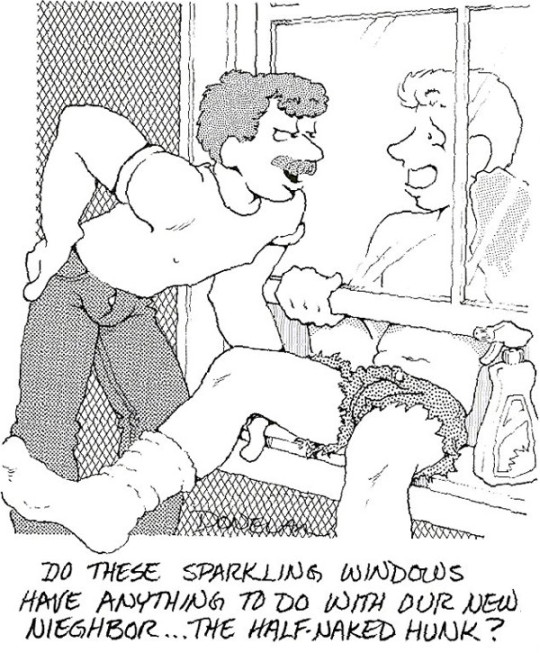
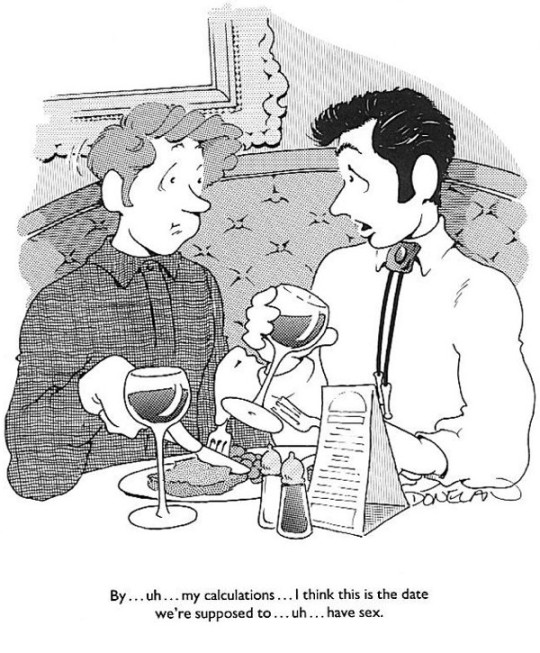
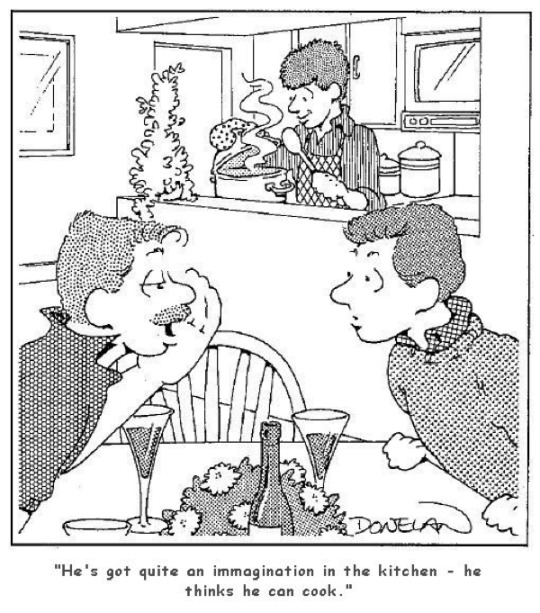
comics by gerard p. donelan
15K notes
·
View notes
Text

E.M. Forster, from Maurice

Euripides


Herakles - Euripides (Tr. Anne Carson)
#BE A FOOL#sorry I know those other two excerpts are very popular on here but I couldn’t think of anything else when I read that line in Maurice#floored me tbh#intertextuality#web weaving#webweaving#on love#literature#poetry#books#litblr#classic lit#classic literature#queer lit#queer literature#gay literature#gay lit#Euripides#Herakles#anne sexton#translated literature#Maurice#e.m. forster#em forster#mine
544 notes
·
View notes
Text
queer romance and sexuality recommendations:
the art of giving and receiving: the wheel of consent by betty martin
leatherfolk: radical sex, people, politics, and practice, edited by mark thompson
gay spirit/gay soul/gay body edited by mark thompson
fierce femmes and notorious liars by kai cheng thom
confessions of the fox by jordy rosenberg
s/he by minnie bruce pratt
the faggots and their friends in between revolutions, by larry mitchell
bushfire/afterglow edited by karen barber
best lesbian erotica volumes 1-13 published by cleis press
the beggar of love by lee lynch
sometimes she lets me: best butch femme erotica edited by tristan taormino
why are faggots so afraid of other faggots?: flaming challenges to masculinity, objectification, and the desire to conform, edited by mattilda bernstein sycamore
queer sex by juno roche
we too: essays on sex work and survival, edited by natalie west
cruising: an intimate history of a radical pastime, by alex espinoza
blood, marriage, wine & glitter, by s. bear bergman
10K notes
·
View notes
Text
he’s a 10 but one of his paintings keeps getting uglier and more horrific with each passing day
#dorian gray#the picture of dorian gray#oscar wilde#dark academia#basil hallward#he’s a 10 but#meme#txt#literature meme#literature#classics#books#tpodg#classic lit#gay literature
11K notes
·
View notes
Text


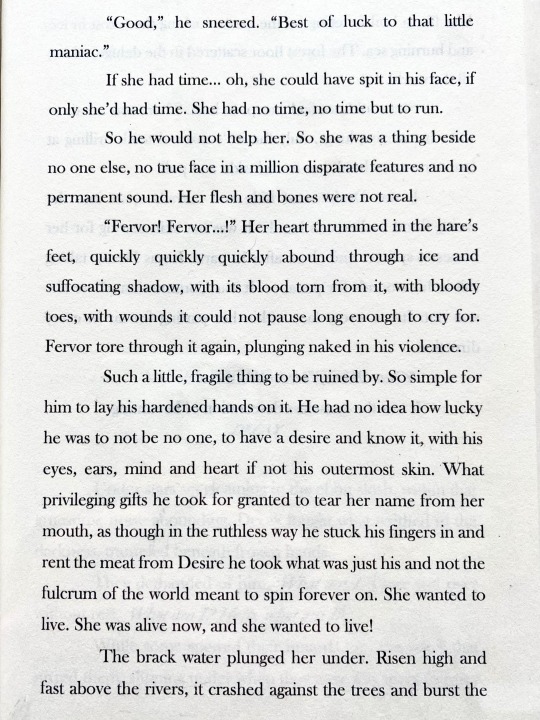
Some of you are familiar with my work already through itch.io or this blog, but I want to say that my book, So Sang the Riverman—a story which tells of the primordial world's destruction after the spirit of life, Fervor, makes off with the heart in Decay's grave—is now available at Barnes and Noble and Amazon. If you have a soft spot for gay romance and "indulgent" prose, have yourself a look, and if you do decide to buy a copy, thank you from the bottom of my heart for supporting my work!
#gothic fiction#so sang the riverman#vt writing#gothic literature#gay fiction#gay literature#queer fiction#queer romance#lgbtq books#queer literature#gay romance#lgbt literature#lgbt lit#indie fiction
371 notes
·
View notes
Text

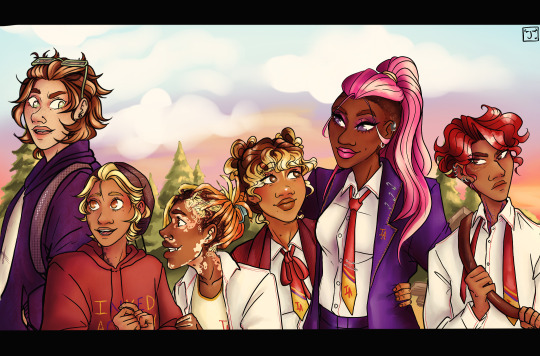
"INKED" by J.J. Jackalope out now!!
Have you guys considered what the world might've be like if sometime a century ago, people started being born with ink embedded into their skin, and powers at their fingertips? No? Well you should start, because I have the new-age queer book for you.
Think X-Men meets coming-of-age meets a bit of Percy Jackson action.
My goal is to give a sense of belong to anyone whose eyes grace my work. I know how important rep is to every minority and I want to do everything I can to give that representation.
Check out my website to learn more and buy!
Here's the book blurb :)
After being in online school for the last four years, Scottlin Vincino starts his Junior year at a new private boarding school an hour from home. It should have been similar to any other in-person school-- but alas, they had everything Scottlin didn’t.
A mark.
He'll have to keep it a secret, but it gets tricky when you have a knack for ending up in the infirmary… Whether it be for the hot boy you just met, or you're swept up in one of the freak accidents at the school that seem to just keep happening.
Scott will have to juggle his sexuality, his grades, and his new friends all while solving the mystery of what is happening to his new academy.
#books#book#author#writing#writer#selfpublishing#self publish#YA novel#YA novels#lgbt#lgbt literature#trans literature#gay literature#gay PEOPLE OKAY???#poc characters#lgbt characters#oc#ofc#oc art#original character#ocs#my ocs#publishing#ad#gay romance#mlm#wlw#all#just all of them#poly
181 notes
·
View notes
Text
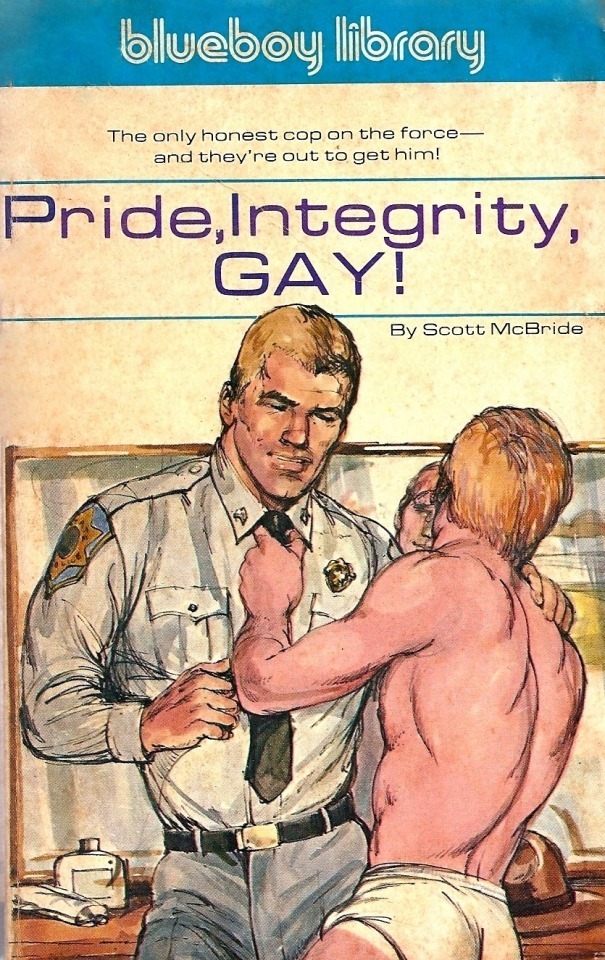
#gay literature#lgbtq literature#pride#gay pride#gay#gay men#gay books#integrity#police#man in uniform#uniform#police uniform#cop#literature#book cover
263 notes
·
View notes
Text
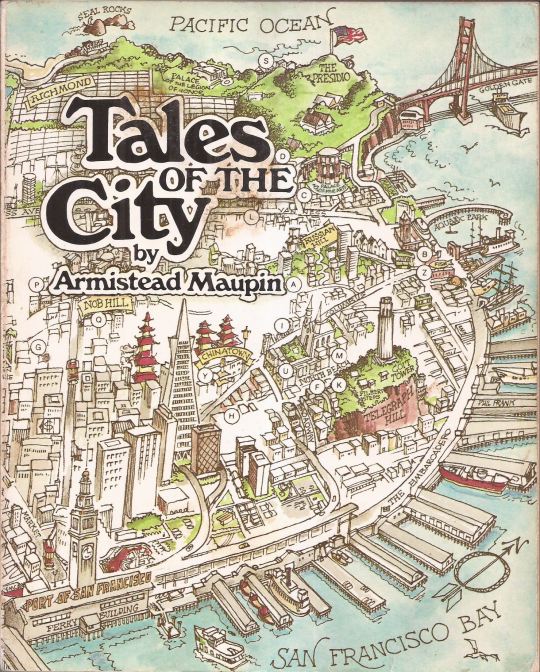
Tales of the City (1978) by Armistead Maupin.
158 notes
·
View notes
Text
LGBT literature of the 1860s–1910s. Part 5
After a long pause, the list is back! Here we have a couple of plays, accounts by two trans women, lesbian poetry, and more.
1. Despised and Rejected, by A.T. Fitzroy (Rose Allatini; 1918). A pacifist novel published during World War One? With gay and lesbian characters? Yes, that was sure to get people in trouble. Its publisher was fined and the judge called it “morally unhealthy and most pernicious”. So, Dennis is a young composer who hates violence and therefore refuses to go to war. He also suffers because he is a “musical man”, that is, gay, and loves Alan, art-loving son of a wealthy businessman. His friend Antoinette, meanwhile, is “strangely attracted” to a woman. Nevertheless, the two attempt to love each other. When the war begins, Alan appears in Dennis’ life again, and they try to avoid being sent to the front together. Alan also persuades Dennis to accept who he is. Edward Carpenter himself defended the novel, saying that “the book is also a plea for toleration of a very much misunderstood section of humanity”.
Read online
2. Autobiography of an Androgyne, by Ralph Werther (1918). Ralph Werther, also known as Jennie June, wrote this autobiography for doctors, and it is very revealing. Being a New York fairy (male prostitute) and possibly a trans woman, they tell frankly about the city’s gay underworld of the early 20th century and their personal experience, which is sometimes too frank and dark perhaps, but all the more interesting.
Read online
3. Poems by Mikhail Kuzmin. Kuzmin was not just the author of Russia’s first gay novel, but also a poet. Many of his works were dedicated to or mentioned his lovers. I’d recommend Where Will I Find Words (in English and Russian), Night Was Done (both in English and Russian), from the 1906-1907 collection Love of This Summer (available fully in Russian), mostly based on his love affair with Pavel Maslov in 1906. And also If They Say (in English and Russian), which is a great statement.
4. The Loom of Youth, by Alec Waugh (1917). A semi-biographical novel based on Evelyn Waugh’s older brother’s experience at Sherborne School in Dorset. It is a story of Gordon Caruthers’ school years, from the age of 13 to 19, and it is full of different stories typical for public schools, be it pranks and cheating exams or dorm life and sports. Although the homosexual subject was quite understated, the author implied that it was a tradition and open secret in public schools. The book became popular and soon caused a great scandal. Worth noting that before that Alec was expelled for flirting with a boy.
Read online
5. Two Speak Together, by Amy Lowell (1919). Lowell was a famous American poet and lesbian. Many of her poems were dedicated to her lover, actress Ada Dwyer Russell, specifically the section Two Speak Together from Pictures of the Floating World. These poems are infused with flower imagery, which wasn’t uncommon for lesbian poetry of the time.
Read online
6. De berg van licht/The Mountain of Light, by Louis Couperus (1905-1906). Couperus is called the Dutch Oscar Wilde for a reason: this is one of the first decadent novels in Dutch literature. It is also a historical one, telling about a young androgynous Syrian priest Heliogabalus who then becomes a Roman Emperor. Homoerotism, hedonism, aestheticism: Couperus creates a very vivid world of Ancient Rome. He also covered the topic of androgyny in his novel Noodlot, which was mentioned in Part 3 of this list.
Read online in Dutch
7. Frühlings Erwachen/Spring Awakening/The Awakening of Spring, by Frank Wedekind (1891, first performed in 1906). This play criticized the sexually oppressive culture prevalent in Europe at the time through a collection of monologues and short scenes about several troubled teens. Each one of them struggles with their puberty, which often leads to a tragic end. Like in The Loom of Youth, homosexuality is not the central focus of the play, but one character, Hänschen, is homosexual and explores his sexuality through Shakespear and paintings. The play was later turned into a famous musical.
Read online in German or in English
8. Twixt Earth and Stars, by Radclyffe Hall (1906). Though it wasn’t known to many at the time, these poems were dedicated to women, some to Hall’s actual lovers.
Read online
9. The Secret Confessions of a Parisian: The Countess, 1850-1871, by Arthur Berloget (published in 1895). This account is similar to the Autobiography of an Androgyne, albeit shorter. The author nowadays is thought to be a trans woman. They describe their love for women’s dresses, the euphoria from wearing dresses, makeup and wigs, the life as a “female impersonator” in Parisian cafe-concerts, and their love affair with a fellow prisoner. The autobiography is not available online, but you can read it in Queer Lives: Men’s Autobiographies from Nineteenth-Century France by William Peniston and Nancy Erber.
10. At Saint Judas’s, by Henry Blake Fuller (1896). This is possibly the first American play about homosexuality. It is very short. An excited groom is waiting for his wedding ceremony in the company of his gloomy best man. They are former lovers, and this short scene is not going to end well…
Read online
Previous part is here
#lgbt literature#lgbt fiction#queer history#queer fiction#lesbian literature#russian literature#gay literature#gay history#spring awakening#lesbian history#blog: history#blog: literature
258 notes
·
View notes
Text
So let’s talk about (homo)sexuality during Shakespeare’s time and in his plays… (with a Shakespearean student, me!)
This is a divisive topic and some scholars have very Bad Takes on it, in my (also a scholar) opinion, so let's talk about it both from an evidence-based perspective, and a queer perspective.
The most important thing to note is that we cannot actually know what Shakespeare or any other Elizabethan citizen really thought about homosexuality and queer love. A lot of scholars acknowledge that fact and then make statements like ‘but they just didn’t think of sexuality like that!!’ but our not-knowing goes both ways. As a gay person, I find the assertion that people during this time period just didn’t feel homosexual love super offensive and ignorant, but at the same time, I know what they mean. So with that in mind, let’s talk about the facts…
Homosexuality was a well known of and partially accepted practice during this time. When I say partially accepted, I mean it was about as acceptable as it would be today at a Christian school in the heart of Texas. People knew about it, they knew people participated in it, but they didn’t like it and believed it went against God. But they felt that way about a lot of things! So when they passed The Buggery Act of 1533 (around 30 years before Shakespeare was born) it wasn’t really enforced. This act prohibited anal sex among any gender, or sex with animals. This law did not refer to gay people; rather just any sex not for the purpose of procreation, or anything that was not consensual.
Now a lot of homosexual practice at this point was unfortunately based on misogyny. Men in society were viewed as dominant and interesting while women were viewed as submissive and annoying. This is an unfortunate fact, but in order to discuss Elizabethan homosexuality in any capacity, we have to accept it for what it is; a reality. Because men generally didn't like women, they often sought out the company of other men in a well-accepted practice simply referred to as Male Friendship.
In male friendships, men would basically hang out together, kiss, cuddle, sleep in bed together, and profess their love for one another. If they had sex with each other, it would be viewed as immoral and wrong, but not unusual or even really cause for alarm. As I said above, sodomy laws were not really enforced during this time. There was no Elizabethan word for being gay or homosexual, and it was not publicly considered an identity or something you could be, rather just something you did. Regardless, even if men participated in these relationships, they still would've been expected to get married to a woman. Since marriage between men wasn't legal, people in society generally didn't consider the fact that two men could love one another. (Lesbian love or sex between women would've been so unthinkable at this point, there really isn't any information on it at all, unfortunately). However, with this, remember that we cannot know what individuals thought about these topics. It's totally possible that men might've fallen in love and wished to be marry, or even have considered themselves to be married. We just don't have that information because it would've been a secret.
So, there are certain contexts when erotic relationships between men would've been acknowledged and even accepted in certain circles, including theatrical ones! So these are the ones we see in Shakespeare's plays. One such context is in a youthful sense; young men were seen as full of life and passion - it's totally possible that they would've fooled around with their other male friends, and it would've been frowned upon, but assumed that they would grow out of it. Another context is in the derogatory sense; it's possible that once men were grown, their youthful same-sex exploits would be used to tease them. And finally, it would've been used in a predatory or immoral way, to represent corruption. This one requires more explaining. It's very important to remember that Shakespeare's plays had to go through the church and church censors. King Lear was censored during King George's reign, for example, and it did happen semi-frequently. So he could not portray explicit queer love on the stage in a positive light. What he could do is portray it in a negative light, which he sometimes did.
Was Shakespeare homophobic? Well, homophobia didn't exist during his time. Everyone was homophobic. Everyone was distasteful of gay people, even other gay people. It's not the best metaphor, but think about it like this; if you smoke cigarettes in today's day and age, you aren't going to go around telling everyone how much you love cigarettes and how great they are, or trying to convince others to try them. You're going to be probably a bit embarrassed and self-deprecating; you know it's wrong and bad for you, but you do it anyway because it feels good. Get it?
Was Shakespeare gay? He was definitely queer. The sonnets he wrote to men prove that, as well as the characters in his plays. But this isn't a biographical post, so let's talk about some literature.
Let's apply what we've learned so far to Shakespeare!
I'll provide an example for each of the above cases in Shakespeare's works.
First, let's talk about youthful 'male friendship' and homoeroticism in Hamlet, cause I know it's everybody's favorite on here.
Hamlet and Horatio's relationship has been speculated on sooo much, I feel like a bit of an exhibitionist once again holding up a microscope to it, but oh well.
Hamlet is a young, troubled protagonist who definitely commits worse crimes that sodomy over the course of five acts. Hamlet is often portrayed on stage as being in his late 20's or 30's, but we can't forget that in the text, him and Horatio are students, they're young! Teenagers or early 20's. The two of them are certainly close (closer than Hamlet is to any other character), and their relationship is reminiscent of the type of male friendship I was describing above.
In their first meeting onstage, Hamlet greets Horatio first, despite multiple people coming on stage at once. Let's break these first five lines down a little bit:
"HAMLET I am glad to see you well.
Horatio—or I do forget myself!
HORATIO The same, my lord, and your poor servant ever.
HAMLET Sir, my good friend. I’ll change that name with you. 170
And what make you from Wittenberg, Horatio?—"
(Hamlet, I.ii.165-170)
So, first off, Hamlet is glad to see Horatio, who he singles out from the group. He'll greet the others later, but first, he greets his good friend. Now, when Hamlet says, "or do I forget myself?" on a surface level, he's making sure he has Horatio's name right. Honestly, this is probably Shakespeare's way of introducing Horatio to the audience. A character needs a name - Horatio is introduced with the reference of his. But Hamlet's meaning has some wiggle room for interpretation - he doesn't say something to the effect of 'your name is Horatio right?" or even just, "or do I forget YOU." He says, "Do I forget myself."
(by the way, in Shakespeare studies, we never blame anything on the meter, meaning it isn't acceptable in a scholarly context to say "oh shakespeare just wrote it that way because 'my*self' is two syllables - Shakespeare is a better poet than that, absolutely nothing is without deeper meaning than just fitting the meter. This is proved by the amount of times that Shax breaks the meter to get a point across - he valued poetry above syllable count).
But I digress. Hamlet saying ' do I forget myself" carries a tremendous amount of weight. He's not being sincere in asking if he has Horatio's name right, he knows Horatio because Horatio is part of him. Just as he would not forget himself, he has not forgotten Horatio.
Now, to look at the next few lines, remember that Hamlet is a prince and Horatio is just Some Guy. During this time period, this would have been significant. Hamlet is choosing to be around Horatio - they aren't of the same class or wealth. So when Horatio refers to himself as Hamlet's "Poor servant ever," he's self-deprecating a little bit, but also addressing the elephant in the theater. Audiences at this time would question why Hamlet was hanging out with this random poor guy. Shakespeare explains with the next line.
"Sir, my good friend, I'll change that name with you." Okay. There's a lot to unpack here. "My good friend," is quite a statement to make. Friend didn't have quite the same implication back then that it does now - back then it would've meant more of 'a person who I am in proximity to and spend time with' than 'my buddy.' It didn't necessarily mean that people enjoyed each other's company. But Hamlet adds in the 'good,' which adds quite a bit of weight. He's using 'good' as a descriptor of Horatio's character here, not a description of the strength of their friendship. If anyone watches WWDITS, think of Lazlo saying, "My good lady wife, Nadja." Hamlet is saying he admires Horatio. He thinks Horatio is of good character, and therefore likes to spend time with him. AND THEN, Shakespeare just kicking me down the stairs and laughing as I fall, he hits us with the, "I'll change that name with you."
The name in question is "your poor servant ever," which means that Hamlet is basically saying, "I like you so much, you can be the prince and I'll be your servant." Which is a crazy thing for a prince to say! And there's really no reason for him to say it, unless him and Horatio were so intimately close that Hamlet truly meant it, which of course, he does.
So, if we're talking about male friendships that exceeds the typical bonds of normal acquaintance... I mean... need I explain further?
I will explain further.
Throughout the play, we see Ophelia as an acceptable love-interest for Hamlet. Even though they don't do very much romancing at all, but... that's okay. She's there, she 'proves' Hamlet's status as a heterosexual man, (and of course, she does much more than that. But for the sake of this analysis, we won't explore her character beyond this.) Despite Hamlet's affection for her, the person he confides to in the play is Horatio. This is unfortunately due to misogyny - women just really would not have been thought of as confidants and people who were able to give advice. But this doesn't invalidate the fact that Hamlet's usage of Horatio as a friend who is distinct from other friends, and who provides council like a partner would, does strongly imply a degree of homosexuality between them.
And of course, there's the blatant homosexuality in Hamlet's death scene, but we don't have time to unpack all of that! (It's been done many, many times, and I'm just providing an overview here.)
Now let's talk about the more derogatory usage of homosexuality using my favorite comedy, 'Much Ado about Nothing.'
In the first scene of the play, Beatrice discusses Benedict, who is coming home from war.
When she first mentions him, she says, "I pray you, is Signior Mountanto returned from the wars or no?" (I.i.30).
'Mountanto' is a fencing term literally meaning an 'upward thrust,' your scholarly annotations won't tell you this, but really what she's doing is referencing the amount of sex Benedict had out on the road during the war. What kind of sex? Gay sex. Let me say more.
Later in the scene we get this gem of an exchange:
"MESSENGER And a good soldier too, lady.
BEATRICE And a good soldier to a lady, but what is he
to a lord?
MESSENGER A lord to a lord, a man to a man, stuffed
with all honorable virtues.
BEATRICE It is so indeed. He is no less than a stuffed
man, but for the stuffing—well, we are all mortal."
(Much Ado About Nothing, I.i.52-58)
Beatrice is making fun of Benedict; she doesn't like him, she's teasing him. First, she outwardly questions his relationships with men, acknowledging that he sleeps with a lot of women, but also suggesting that he sleeps with men. The messenger doesn't rise to her bait, he affirms Benedict's "honorable virtues" meaning that doesn't believe Benedict would've slept with men - he's too good. However, Beatrice plays off of his use of "stuffed" and elaborates that not only does Benedict have gay sex, but that's he's the one being penetrated during the gay sex, which would've been emasculating as men were assumed to be dominant. A stuffed man means she thinks he's a bottom. The layers of this gay sex joke have added years to my life. Absolutely hilarious.
Additionally, throughout the play, Benedict frequently mentions that he has no desire to marry a woman because he has no need. This is probably because he's content to fuck around with men for a while, and doesn't feel the need to marry a woman for sex. — He later marries a woman for love. Different story ;)
Finally, let's discuss the use of homosexuality as a form of corruption using my FAVORITE queer coded characters ever, Brutus and Cassius of Julius Caesar!
I just wrote an entire paper for school on how badly Brutus and Cassius want each other, so I have A Lot to say, but I'll restrain myself... deep breath...
The first conversation Brutus and Cassius have on stage is a seduction, literally. Cassius is seducing Brutus and pulling him away from Caesar, with compliments and promises. Brutus promises to consider Cassius's offer and walks away, but the next time we see them, things have Changed. Brutus says the following after him and Cassius talk to a third party (Casca):
"BRUTUS Tomorrow, if you please to speak with me,
I will come home to you; or, if you will,
Come home to me, and I will wait for you."
(Julius Caesar, I.ii.316-319).
I mean, what can I say about this beyond the obvious. They're going home to each other. Brutus's corruption directly corresponds with his physical descent into moral depravity (homosexuality).
And then, once Brutus leaves the sage, Cassius says this:
(Cassius, continued): For who so firm that cannot be seduced?
Caesar doth bear me hard, but he loves Brutus.
If I were Brutus now, and he were Cassius,
He should not humor me."
(Julius Caesar, I.ii.324-327).
Cassius is a manipulator, we know that. He draws the "honorable" Brutus to betray his friend and commit an act of evil. All with the power of homosexuality :).
Once he succeeds in this, we get the infamous Tent Scene. Act 4, scene 3. Folks, I think about this scene every day. If you've read the book 'If We Were Villains,' that author does a fun job of explaining this scene, I like the way she calls it a lovers spat.
Brutus realizes that Cassius seduced him for the purpose of corrupting him, and is heart broken. Somebody PLEASE ask me to do a line-by-line breakdown of this scene, because nothing would make me happier. But for now, like I said, I'll restrain myself.
As Brutus and Cassius, fight, we get this exchange:
"BRUTUS Peace, peace! You durst not so have tempted (Caesar).
CASSIUS I durst not?
BRUTUS No.
CASSIUS What? Durst not tempt him?
BRUTUS For your life you durst not.
CASSIUS Do not presume too much upon my love.
I may do that I shall be sorry for."
(Julius Caesar, IV.iii.66-73)
Brutus is betrayed, and feels that Cassius never would've (sexually) tempted Caesar the way he did to Brutus. Brutus feels like he got played. But Cassius, while threatening Brutus, takes time to reaffirm that he loves Brutus! His feelings are real; this is part of what unfortunately categorizes him as a villain. He is unflinchingly gay for Brutus.
Later in this same scene, we get another notable exchange:
"CASSIUS I denied you not.
BRUTUS You did.
CASSIUS I did not. He was but a fool that brought
My answer back. Brutus hath rived my heart.
A friend should bear his friend’s infirmities,
But Brutus makes mine greater than they are.
BRUTUS I do not, till you practice them on me.
CASSIUS You love me not.
BRUTUS I do not like your faults."
(Julius Caesar, IV.iii.90-100)
Sigh. Okay, this is... this is maybe Shakespeare's most romantically gay scene ever. And this is what makes gay corruption in Shakespeare so awesome; under the guise of painting Cassius as more and more evil, Shakespeare can be pretty explicitly gay!!
"Rived" means broken in old English. With his withdrawal of love, Brutus as broken Cassius's heart. Again, as I said above, 'friend' meant something different back then. Here, Cassius is using it in the Male Friendship sense, much like Hamlet did. This section is just so romantic, it breaks my heart. The fact that just like Cassius did, Brutus takes time to remind Cassius that he still loves him (even though he dislikes Cassius's faults) is so sweet. I love this passage. I could talk abut it forever.
So there we go! Some background and some examples for you!!
Please comment with your thoughts, I would love to discuss.
Works consulted:
Primarily just years of studying Shakespeare, but more specifically:
Homosexual desire in Shakespeare's England : a cultural poetics : Smith, Bruce R., 1946- : Free Download, Borrow, and Streaming : Internet Archive
Much Ado About Nothing - Entire Play | Folger Shakespeare Library
https://www.folger.edu/explore/shakespeares-works/julius-caesar/read/
https://www.folger.edu/explore/shakespeares-works/hamlet/read/
#shakespeare#william shakespeare#hamlet#hamlet and horatio#julius caesar#dark academia#hamlet x horatio#if we were villains#gay pride!!!#academia#literature#gay literature#queer community#shakespeare shitposting#shakespeare plays#shakespeare quotes
202 notes
·
View notes
Text
All Different Endings of Maurice and Alec from E.M. Forster's Maurice
Having been to the King's College archive myself, as well as read the Abinger edition of Maurice (which examines the differences between various versions of the manuscripts stored at the archive), I can conclude that there are 3 main different versions of the novel: from 1914, 1932, and 1952-1959, each differing from one another in Forster's treatment of the relationship between Maurice and Alec after the British Museum.
1914 version:
Order: British Museum - Southhampton - Penge with Clive - Epilogue
NO HOTEL SCENE, NO BOATHOUSE
In this version, Maurice and Alec do not spend the night together after the British Museum; Alec asks Maurice to but Maurice refuses with a long speech about how they shouldn't be together because of their class differences. So they part ways instead.
Maurice, however, does go to the Southhampton to see Alec off. After not seeing Alec there, Maurice leaves with Reverend Borenius at end of the chapter directly to Penge to say goodbye to Clive.
The reunion between them is implied first during Maurice's farewell to Clive—"I've wired to him (that I understand why he missed the boat)"—and then specifically illustrated in the written epilogue.
1932 version:
Order: British Museum - Southhampton - Penge with Clive
NO HOTEL SCENE, NO BOATHOUSE, NO EPILOGUE
The British Museum chapter is pretty much the same as the published version.
Maurice and Alec stay the night but there is NO hotel chapter written out. Their night together is only described in 4 lines at the beginning of the Southampton chapter as an "unwise escapade".
The scene thus goes from Maurice saying "To hell with with it" directly to him at the Southampton.
The end of the Southampton chapter as well as the farewell chapter with Clive conform to the 1914 version: i.e. no boathouse reunion.
Epilogue by 1932 had already been disregarded by Forster, so the only clue we have to the reunion between Maurice and Alec is Maurice's line "I've wired to him (that I understand)".
Therefore the 1932 version is the least hopeful in regards to the happy ending between Maurice and Alec.
1950's version:
Order: British Museum - Hotel - Southhampton - Boathouse - Penge with Clive
This is basically the final and published version that we all have read.
The hotel chapter was drafted out in 1952 and added to the 1932 manuscript.
But it wasn't until 1958 that Forster was able to finally and fully pen out how Maurice and Alec reunite at the boathouse.
It must be noted that Forster had troubles finding a way to bring Maurice and Alec together, and in fact refused to reunite them for decades. The boathouse reunion, Alec sending a wire to Maurice, and Maurice not receiving that wire but instinctively knowing where Alec is nonetheless—all were only conceived by Forster in 1958.
Therefore—and this is really the most touching and important part—according to scholars and editors of the Abinger edition...
"now we shan't be parted no more, and that's finished" were by logic the very last words Forster had written for the novel. Alec's promise marks the end of Maurice's search for a friend, as well as the end of Forster's writing progess for Maurice. It is both a fictional and a real-life farewell.
#em forster#maurice#maurice 1987#maurice em forster#maurice hall#alec scudder#em forster maurice#clive durham#university of cambridge#kings college#gay novels#gay literature#homosexuality#happy ending#gay books#edwardian era#dark academism#dark academia#dark acadamia aesthetic#dark acadamia quotes#dark acamedia
502 notes
·
View notes
Text

— Philippe Besson, Lie With Me
980 notes
·
View notes
Text
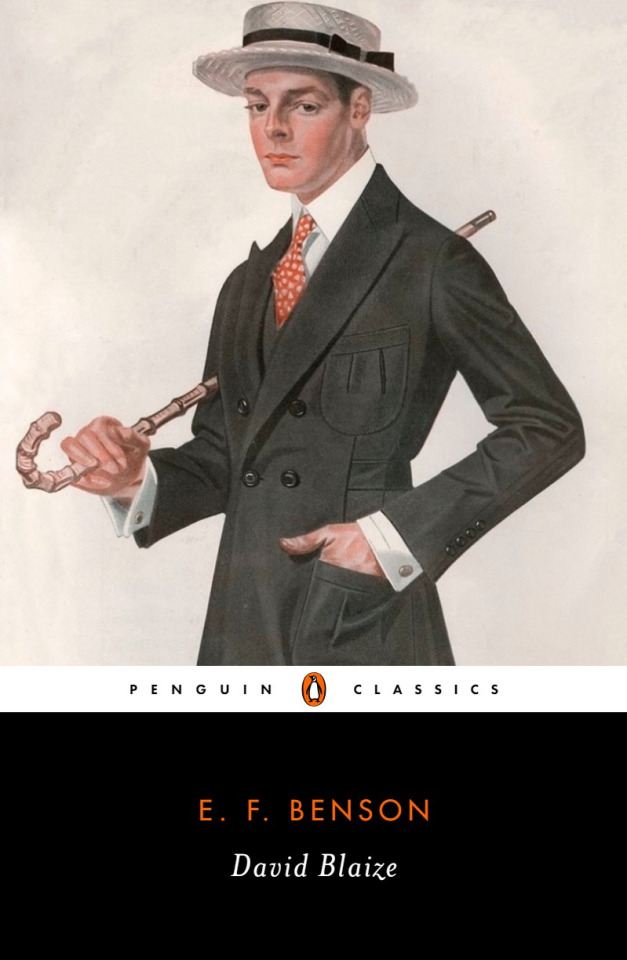



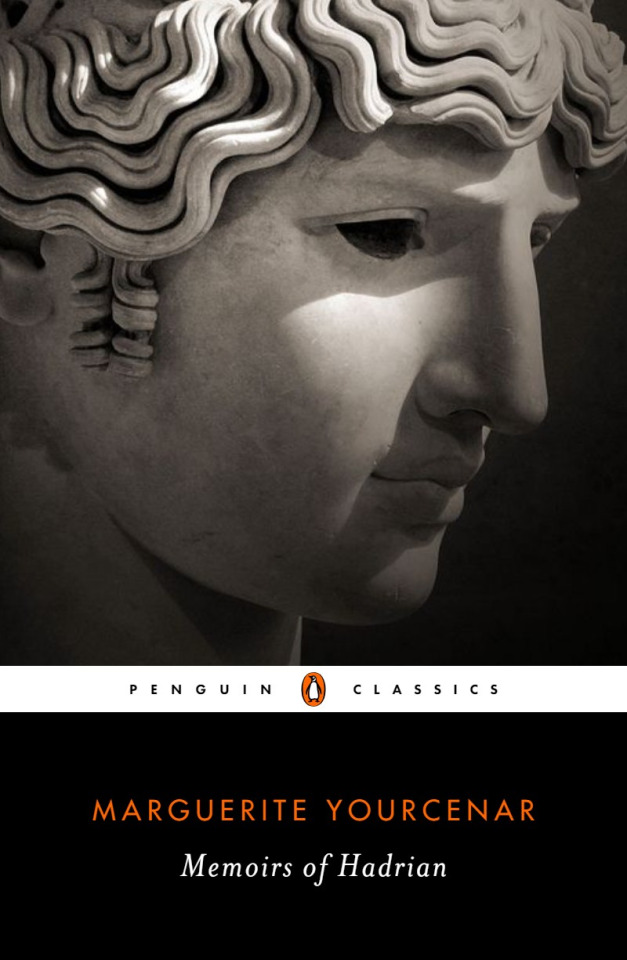
I made Penguin Classics covers for some old gay novels.
(Part 2)
#book covers#penguin classics#penguin covers#david blaize#david of king's#brideshead revisited#the charioteer#memoirs of hadrian#e. f. benson#evelyn waugh#mary renault#marguerite yourcenar#gay literature#lgbt literature#gay#mlm#books#booklr#long live leyendecker!
305 notes
·
View notes
Text
Daniel Marin Medina: James
60 notes
·
View notes
Text
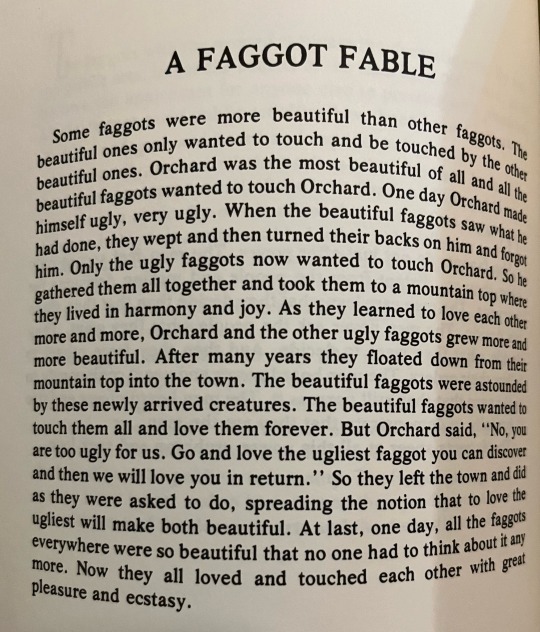
"Some faggots were more beautiful than other faggots. The beautiful ones only wanted to touch and be touched by the other beautiful ones. Orchard was the most beautiful of all and all the beautiful faggots wanted to touch Orchard. One day Orchard made himself ugly, very ugly. When the beautiful faggots saw what he had done, they wept and then turned their backs on him and forgot him. Only the ugly faggots now wanted to touch Orchard. So he gathered them all together and took them to a mountain top where they lived in harmony and joy. As they learned to lobe each other more and more, Orchard and the other ugly faggots grew more and more beautiful. After many years they floated down from their mountain top into the town. The beautiful faggots were astounded by these newly arrived creatures. The beautiful faggots wanted to touch them all and love them forever. But Orchard said, "No, you are too ugly for us. Go and love the ugliest faggot you can discover and then we will love you in return." So they left the town and did as they were asked to do, spreading the notion that to love the ugliest will make both beautiful. At last, one day, all the faggots everywhere were so beautiful that no one had to think about it any more. Now they all loved and touched each other with great pleasure and ecstasy."
"A Faggot Fable" The Faggots and their Friends Between Revolutions, Larry Mitchell (1977)
#the faggots and their friends#the faggots and their friends between revolutions#Larry Mitchell#gay lit#gay history#vintage gay lit#70s gay lit#queer history#queer lit#lgbt#lgbt history#lgbt lit#gay literature#historic gay literature
297 notes
·
View notes
